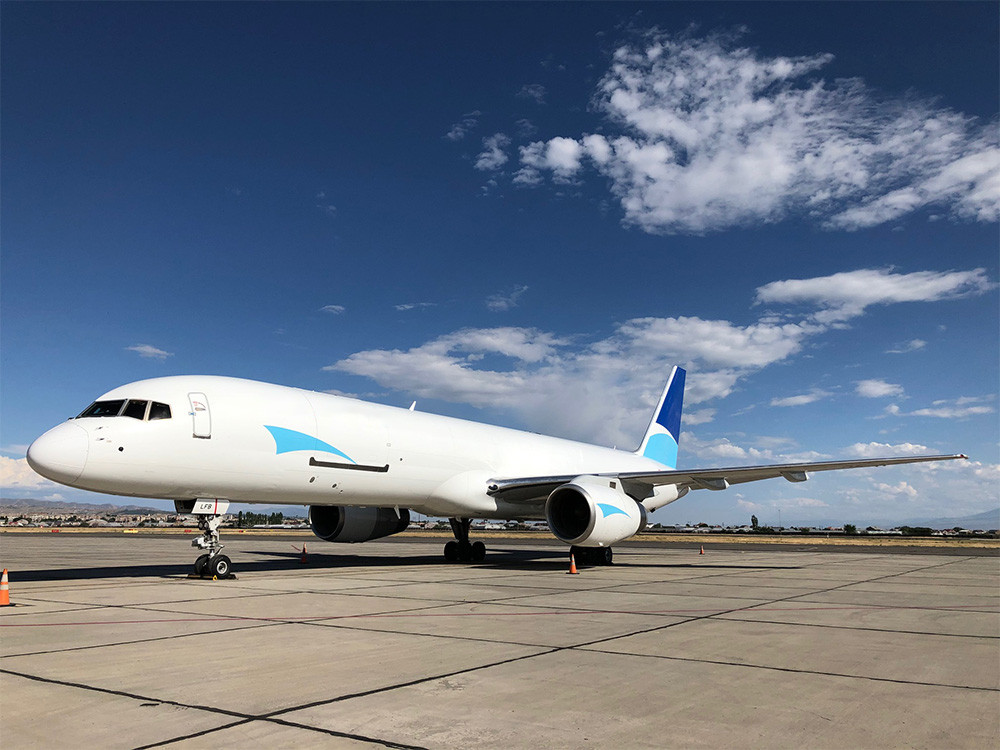
Coyne Airways is deliberately batch to the German market through a recently announced partnership with ARM Global Group, Mondial Airlines Services GmbH. For the transportation company, which specializes in complex markets that were often deprived, Germany does not represent another major location – but the market that can support the broader European performance of the company.
“We were seeking to develop the German market, which may have been the most important market in Europe,” said Larry Quinn, president of Coyne Airways. “We were looking for a new GSA recently, and I think we have found this right, and we want to grow this market. If we don’t achieve well in Germany, we do not do well as a company.”
For Coyne Airways, each GSA key is more than just a logistical change – it’s a strategy to improve customer participation. “We are always looking for new ways to interact with customers. We loved what GmbH Mondial Airlines GmbH said about their approach and ways.” “They also have a good truck transport coverage, and it is a benefit to us.”
This partnership is suitable for the Global GSA Group group, directly with its mission to support airlines while reaching strategic markets.
“It is very interesting to have a specialized operator like Coyne Airways on the plane,” said Aytekin Sarai, CEO of Global GSA Group. “We do not have any airline today that contradicts Coyne Airways – places like Sierra Leone, Armenia, Telblisi, and perhaps Iraq or Afghanistan. These specialized markets have become of increasing importance.”
Read more: Coyne Airways Platform Webcargo
Reviving the charter
While a lot of air cargo conversation has turned towards digital transformation and unified commercial corridors, Coyne Airways and Global Gsa Group appoint a reorganization of one of the oldest strong models in this field: the charter operations.
Coyne spoke frankly about the renewed focus on the covenants: “During the past three or four months, our office in Dubai has focused on the covenants – with increased flights from China to Europe and the Middle East. This is part of the work we somewhat ignore in Europe, and we would like to return to it.”
According to Coyne, this is not only about chasing the direction but returning to the company’s roots. “We started as a rented program, and we would like to expand in this field. Sometimes a series of covenants can be in a specific place to start a new guidance – and so I think we will develop our future network.”
Sarai agrees to: “From our maximum eastern networks, we see requests for partial covenants and special goods.
Both sides are optimistic about the feedback ring that can create it, especially when they are compact with the proactive customer interaction. “We are already asking customers to ask things like the United States -related goods from TBILISI,” participated in Sarai. “Our office in Athens Delta is regularly getting calls from Georgia – we may be able to continue or even make a direct tenant with Coyne Airways to create a new flow. This is the type of brainstorm we offer now.”
Gardiner stressed the importance of exchanging internal knowledge: “We know that our destinations are not easier. It is very important that GSA understands the typical difficulties. We are walking on it through our operations and building the base of knowledge so that it can become self-sufficient-and this is what we do with Mondial GmbH.”
Read more: Larry Coyne and Olivier Bijaoui Join Tiaca Hall in ACF
Innovation and human touch
In an increasingly automation industry, Coyne Airways and Global Gsa Group insist that the human relationship still outperforms digital comfort-especially when providing complex or high-risk markets.
“There is now a desire to get everything in the tips of your fingers. But we have always followed a personal approach – so we work. You call us, we will answer in two or two episodes. This was our style.”
However, Coyne Airways actively invest in digital tools – not to replace people, but to support them. “We are on a journey to improve tracking, customer communication, and digital touch points. We may have been a little slow on this front, but it was a conscious decision to maintain that human service. However, we have some exciting digitization projects on the horizon.”
Sarai echoed these feelings, as she presented a pragmatic view: “Maybe I am of the old style, but I do not think that digitization alone will save this industry. We are working with Cargotech as a strategic partner, and we provide our network with appropriate digital tools-not to lose sight of the fact that people still want to talk to people.” Both sides believe a firm belief that the best future lies in hybrid solutions. “You must complete the human touch, and do not replace it,” said Garderner. “Can you really replace man? Hope not.”